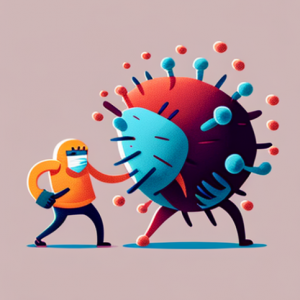Understanding Long COVID: Symptoms, Causes, and Prevention
Exploring the lingering symptoms of Long COVID, the typical patient, causes, treatments, and ways to prevent contracting COVID-19 and developing Long COVID.
NOVI, MI, UNITED STATES, March 8, 2023 /EINPresswire.com/ -- COVID-19 is a disease caused by the novel coronavirus. While most people who contract COVID-19 recover within a few weeks, there is growing concern about the long-term effects of the virus. Many people who have recovered from COVID-19 continue to experience symptoms for months after their initial diagnosis. This condition is known as long COVID or post-acute sequelae of SARS-CoV-2 infection (PASC).
Understanding Long COVID Symptoms
The symptoms of long COVID can vary widely between individuals. Some people experience ongoing fatigue, while others have difficulty breathing or chest pain. Other common symptoms include brain fog, joint pain, and depression or anxiety.
Who is Affected by Long COVID?
There is no typical long COVID patient. Anyone who has recovered from COVID-19 can develop long COVID, regardless of age or overall health.
Factors Contributing to Long COVID
The exact causes of long COVID still need to be fully understood. It is thought that the virus may damage the body's organs and immune system, leading to ongoing symptoms.
Diagnosis of Long COVID
There is currently no test that can diagnose long COVID. If you are experiencing ongoing symptoms after recovering from COVID-19, your healthcare provider may recommend additional tests to rule out other conditions.
Managing Long COVID Symptoms
There is no specific treatment for long COVID. Healthcare providers may recommend symptom management, such as physical therapy or medication to relieve pain or other symptoms.
Prevention of Long COVID: Reinfection and Vaccines
The best way to prevent long COVID is to prevent COVID-19 infection altogether. This can be achieved by wearing a mask, practicing social distancing, and frequent hand washing. Vaccinating against COVID-19 can significantly reduce your risk of contracting the virus and developing long COVID.
In conclusion, long COVID is when people experience ongoing symptoms after recovering from COVID-19. The symptoms can vary widely, and there is currently no specific treatment. However, preventative measures such as vaccination and following public health guidelines can significantly reduce the risk of developing long COVID.
Claudio Tartaglia
SLI Medical
Info@SLIMedical.com
Visit us on social media:
Facebook
Twitter
LinkedIn
Legal Disclaimer:
EIN Presswire provides this news content "as is" without warranty of any kind. We do not accept any responsibility or liability for the accuracy, content, images, videos, licenses, completeness, legality, or reliability of the information contained in this article. If you have any complaints or copyright issues related to this article, kindly contact the author above.

